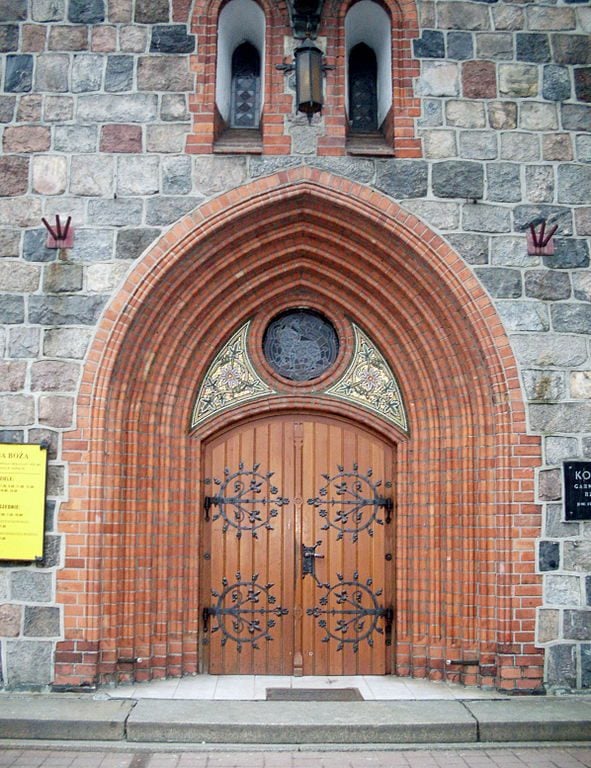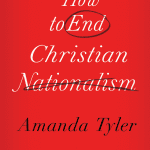
Main door of the Church of Saint George in Sopot, Poland. [Wikimedia Commons / Creative Commons Attribution-Share Alike 3.0 Unported license]
*****
(10-7-08)
*****
A Lutheran woman who is considering Catholicism brought up a question regarding the Sunday Mass obligation:
My therapist and his wife – formerly life-long Evangelicals – became part of the RC church last Easter. That was a real heads up for me. I totally respect both of them, their research and study, their morals and values, and the way they live their lives. . . . His aged, ailing, mother has been in a nursing home for rehab. and just came back home (she lives with them), and the first Sunday she was able, they took her to her church – helping her out of the car and into a pew. They picked her up afterwards. In the meantime they went to their Mass. She asked if they “wouldn’t come in with her and be at church with her.” They said they would, but they would still have to go to Mass. I don’t know, Dave, I found that so very sad … here’s this poor woman, obviously proud of her family (and she has a right to be) and asked them to be with her for church. And, they said no because they’d still “have to” go to their own Mass. Something about that kind of rigidity just doesn’t feel like charity and love to me …. it doesn’t feel like Grace.
In those cases, the Catholic can always go to a Saturday Mass, so they could also attend with the mother. We’re not disallowed to go to Protestant services. We recommend that all the time on this [Coming Home Network] forum in mixed marriage situations. I have suggested it myself, probably a dozen times.
The Sunday obligation was not intended to be just some legalistic thing, but to foster the understanding that Mass attendance and corporate worship of God is supremely important and “non-optional.” Human nature is such that we will look for loopholes whenever possible, to avoid doing even things we know are good and right. The Mass obligation is a sensible counter to that: “you must go to Church or be guilty of a mortal sin.”
After all, we feel that about jobs, don’t we (minus the mortal sin part!)? We don’t consider that optional, to not show up at our jobs everyday. That’s a rule. We don’t try to bend that and go fishing one day, as if we had no responsibility. But when it comes to the things of God, so often we don’t feel a similar obligation, because no one is holding a job and a paycheck over our heads (i.e., coercion of some sort). We don’t think like this with regard to children and their school, etc.
It’s human nature. It would be wonderful if human beings would willingly do what they should at all times without rules, but that’s not reality. And so the obligation is very much a merciful, loving thing, just as parental discipline and rules are altogether loving, though the children think the opposite.
I see the objectionable, rather anti-biblical attitude on this score in some of my friends. One of my very best friends is a Protestant, and he doesn’t go to church at all anymore. He comes up with some lamebrain excuse that doesn’t hold any water. I simply quoted the Bible at him the last time we got together: “forsake not the assembly of yourselves.”
In the Protestant mindset, though church is surely highly urged (and I would rarely miss a service when I was Protestant), yet there is no binding obligation as in Catholicism, so some people, like my friend, will make that loophole so big a truck could drive through it, and go through life almost as “spiritual loners”. For my money, I’ll take the Sunday Mass obligation any day, over this mentality, where Christians become “lone rangers” and have little or no sense of corporate involvement and accountability. It’s not a burden at all: it’s a freedom to be what God wants me to be: to worship and receive Him with my brothers and sisters in Christ and the Church every Sunday.














